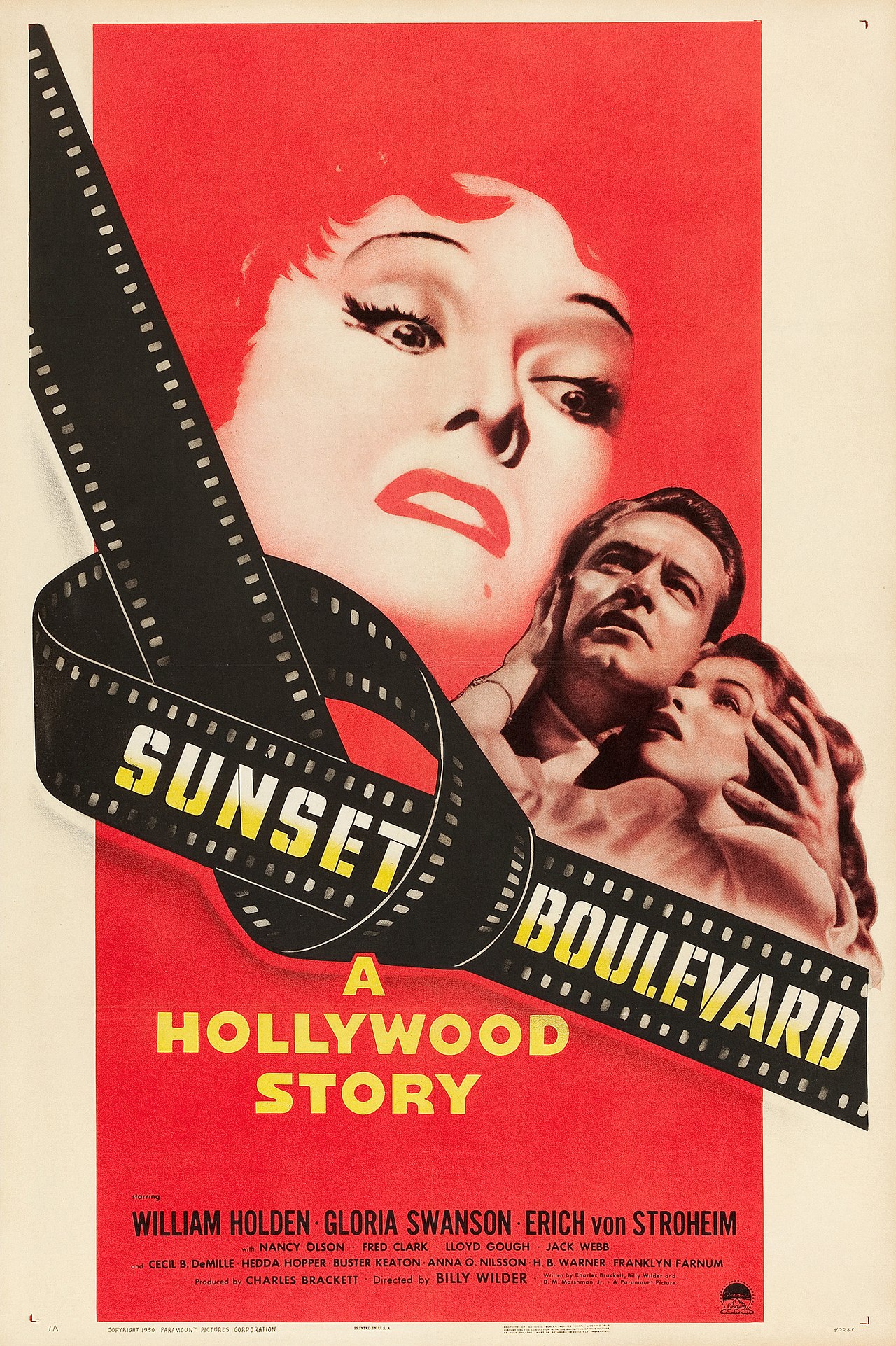
Sunset Boulevard
Billy Wilder’s “Sunset Boulevard” kicks off with possibly the most attention-grabbing opener in film history – our narrator is floating face-down in a swimming pool, and he’s, well, dead. Talk about starting with a bang! This deceased fellow is Joe Gillis, a down-on-his-luck screenwriter who then takes us back six months to explain how he ended up as pool decor.
It all starts with Joe running from repo men trying to snag his car (because apparently being a Hollywood writer wasn’t quite as glamorous as the brochures suggested). During his escape, he conveniently gets a flat tire and pulls into what appears to be an abandoned mansion on Sunset Boulevard. Except it’s not abandoned – it’s the home of Norma Desmond, a forgotten silent film star who’s been living in her own private time capsule with her intensely creepy butler, Max.
Norma, who’s about as stable as a Jenga tower in an earthquake, has written a massive screenplay about Salome that she’s convinced will be her “return” (don’t you dare say “comeback”!). She hires Joe to edit it, though “traps” might be a better word. Soon enough, Joe finds himself installed as Norma’s kept man, living in luxury but feeling increasingly like a pet hamster in a gilded cage. The woman buys him expensive clothes, throws lavish parties where she’s the only guest, and watches her old silent films with the kind of devotion usually reserved for religious experiences.
Meanwhile, Joe starts secretly working on a screenplay with Betty Schaefer, a young script reader who’s engaged to his best friend Artie. Because apparently Joe hasn’t noticed he’s living in a film noir and this can only end badly. As Joe and Betty fall in love, Norma becomes increasingly unstable, attempting suicide when she thinks Joe might leave her (manipulation level: expert).
The whole thing comes to a head when Joe finally tries to break free. He tells Norma he’s leaving and that her dream comeback is never going to happen – her fan letters have been written by Max all along (who, in a twist that would make Freud need a lie-down, turns out to be both her ex-husband AND her former director). Norma, taking rejection as well as you’d expect from someone who hasn’t heard the word “no” since 1925, shoots Joe three times, bringing us full circle to our swimming pool opening.
The finale is pure Hollywood grotesque – Norma, completely detached from reality, descends her grand staircase believing she’s filming her great comeback scene, while the police and news cameras capture her final performance. “I’m ready for my close-up, Mr. DeMille,” she announces to the waiting cameras, having fully retreated into her own private fantasy world where she’s still the greatest star of them all.
And there you have it – a cautionary tale about Hollywood, fame, delusion, and why you should always pay your car payment on time. Also, maybe don’t move in with mysterious former silent film stars, no matter how good their pool looks.
4/5 sad stars. I’ve always heard the line ‘I’m ready for my closeup Mr. Deville’ and I never knew where it was from until I saw this movie. It was a really good film – if a little unsettling. This poor woman a victim of Hollywood and it’s pursuit of beauty and youth has a mental break and is essentially taken advantage of by Joe who’s really in it for the free house and cash. I feel like Joe got what was coming to him – I mean he stole his best friend’s gal as well – the guy is morally bankrupt and I didn’t feel bad at all that she John Wick’d his ass